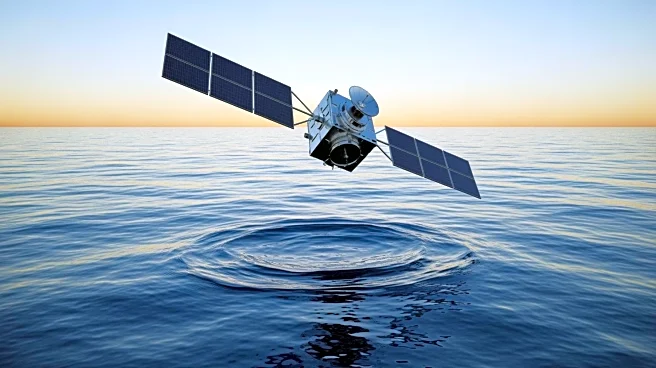What's Happening?
NASA and SpaceX have successfully launched the Sentinel-6B satellite, part of a collaborative effort with the European Space Agency and other partners, to monitor global sea level changes. The satellite, launched from
Vandenberg Space Force Base in California, is equipped with advanced radar technology to measure sea levels with high precision. This mission builds on previous efforts dating back to the 1990s, providing continuous data on sea level rise, a key indicator of climate change. Despite the Trump administration's policies to scale back climate research, NASA continues to emphasize the practical importance of monitoring sea levels for public safety and infrastructure planning.
Why It's Important?
The launch of Sentinel-6B is crucial for understanding the impacts of climate change, particularly the rising sea levels that threaten coastal communities worldwide. The data collected will aid in predicting coastal erosion, saltwater intrusion, and other environmental changes affecting agriculture and municipal water supplies. This information is vital for city planning, flood predictions, and protecting commercial and defense interests. The collaboration between NASA and international partners underscores the global effort to address climate-related challenges and improve resilience against environmental changes.
What's Next?
The Sentinel-6B satellite will continue to provide valuable data on sea level changes, contributing to a multi-decade dataset essential for climate research. As the satellite orbits the Earth, it will cover 90% of the world's oceans, offering insights into temperature and humidity variations in the atmosphere. This ongoing mission will support navigation, search and rescue operations, and industries like commercial fishing and shipping. The data will also inform U.S. flood predictions and help manage coastal infrastructure and real estate development.
Beyond the Headlines
The Sentinel-6B mission highlights the ethical and scientific responsibility to monitor and respond to climate change. The collaboration between NASA and international agencies reflects a commitment to global cooperation in addressing environmental challenges. The data collected will not only inform immediate policy decisions but also contribute to long-term strategies for sustainable development and climate resilience.










